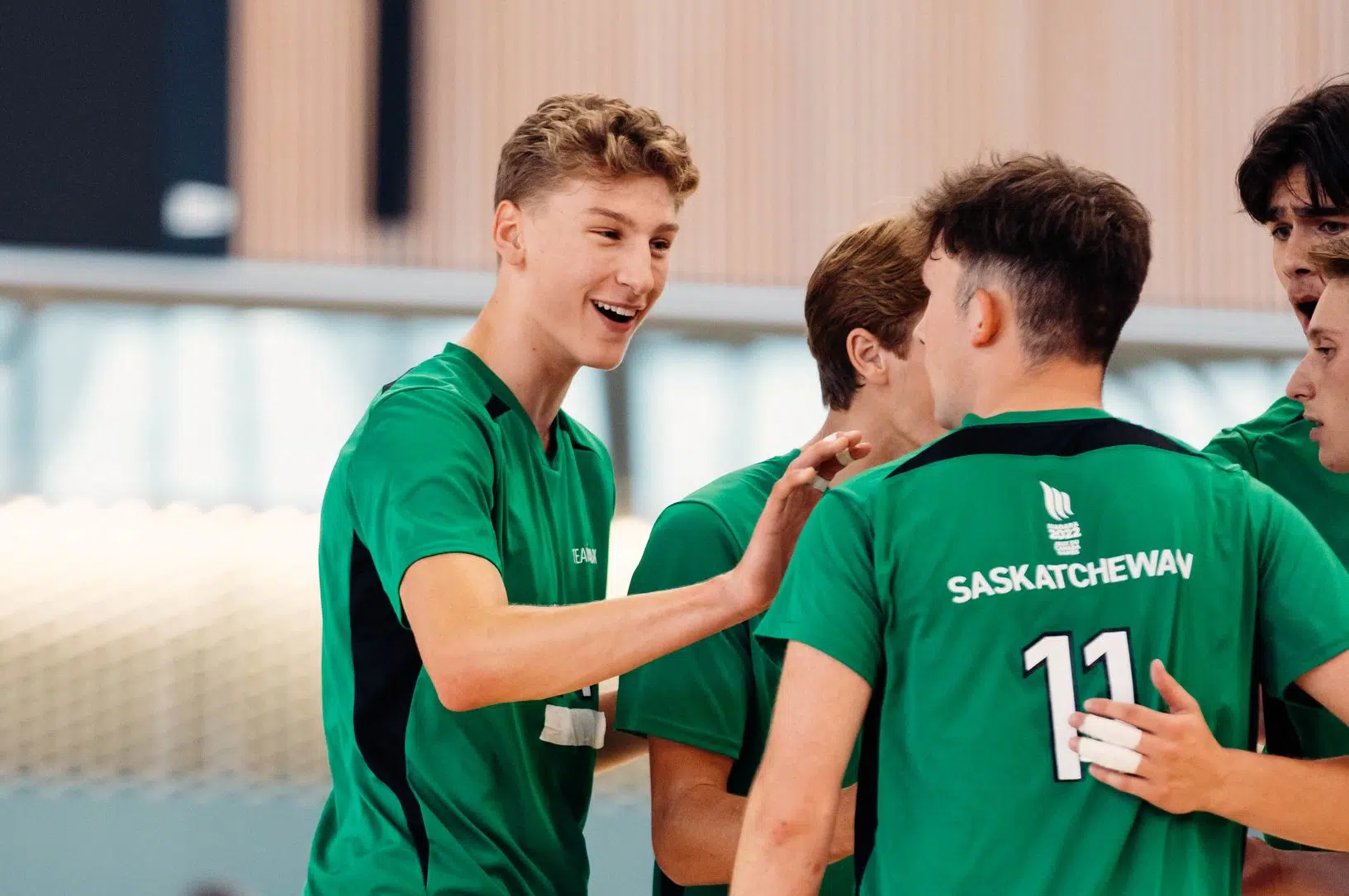Out of the hundreds of participants at this summer’s Canada Games, one from Saskatchewan stood out above the rest.
Team Saskatchewan volleyball player Skyler Varga not only led the men’s team to gold, but he was just announced as the Roland Michener Award recipient.
It’s handed out each Games to a male athlete and a female player who exemplify outstanding leadership, co-operation and excellence on and off the field.
Sprint canoeist Ava Carew from Dartmouth, N.S., won the female award.
“I was pretty excited,” Varga said of his reaction when he found out he won the award.
But he didn’t know how much weight the award carried when he found out.
“To be completely honest, I didn’t know much about the award so I was like, ‘Oh, OK. It’s an award.’ But then once I actually figured out what it was, I was blown away,” he said.
Varga said it was hard to fathom that he was selected out of all the competing athletes. It took a minute for it all to settle in.
“It finally hit me probably five hours after I figured out I won the award,” he said.
Varga was nominated by head coach Joel Dyck. Even though Dyck knew there was going to be some stiff competition, the announcement didn’t catch him off guard.
“I was not really surprised because (Varga) is such a quality individual and obviously just a very high-level athlete. When I heard he was chosen, I was like, ‘Wow, that’s pretty cool.’ But I wasn’t overly shocked because he’s a pretty special person and a pretty special athlete,” Dyck said.
Players like Varga are what coaches look for. Dyck said they clearly have the physical abilities, but that is noticed early.
“When you have an athlete that just has the quiet confidence in their abilities, that just shines through and it makes those around him better. And Skyler was able to do that so well,” Dyck said about his team’s captain.
Volleyball runs through the Varga family. Skyler grew up in Muenster, which is 90 minutes east of Saskatoon, and had three siblings who also played competitively.
He says a lot of the credit goes to his family for building him up to this moment.
“My mom and dad, ever since I could walk, they introduced me to volleyball. So I’ve learned a lot from them. And then I have three older siblings who all played volleyball in post-secondary. Just learning from them and watching them, my entire family impacted me a lot,” Varga said.
But he didn’t forget about the coach who has been by his side for the past five years.
“Working with (Dyck) really helped me develop those kinds of skills and a lot of credit goes to my parents and Joel,” he added.
Growing up, he always looked up to his siblings and strived to be as successful as them.
“Especially my oldest brother — him being the first kid in our family to go into post-secondary, I really looked up to him,” Varga said.
But he looked up to members of the national men’s senior team too in Gavin Schmitt — who’s from Saskatoon — and T.J. Sanders.
But growing up in a small community of around 400 people, there weren’t as many programs to play the sport. His love of and entry into the sport come from his family.
“A lot of it goes back to my older siblings. My oldest brother tried to put a team together in Grade 7 and I think that trickled down throughout the family — just trying to put teams together as we’re growing up,” Varga said.
He said he was able to benefit from that by not having to ask people to play, as his siblings already put down a foundation in the community.
Varga has taken full advantage of that opportunity, as he wants to continue growing his volleyball career and hopefully play in the Olympics.
The passion for the sport doesn’t go unnoticed by Dyck and his coaching staff.
“(They are) very lofty goals. But certainly, when you receive an award like this, it just makes it clear that he has the qualities outside of the physical abilities to get him there,” Dyck said.
“When you get to the highest level, everyone has the physical abilities. But when you show these intangible things like leadership and character, and being a good teammate, volunteerism, all these other things this award represents, it goes miles to help you achieve those goals.”
That has become evident as Varga transferred from the University of Saskatchewan to play at California State University, Long Beach.
“I never thought I’d be playing volleyball in the United States for university, and coming from a small town of 450 people and then coming to Los Angeles is ridiculous,” he said.











